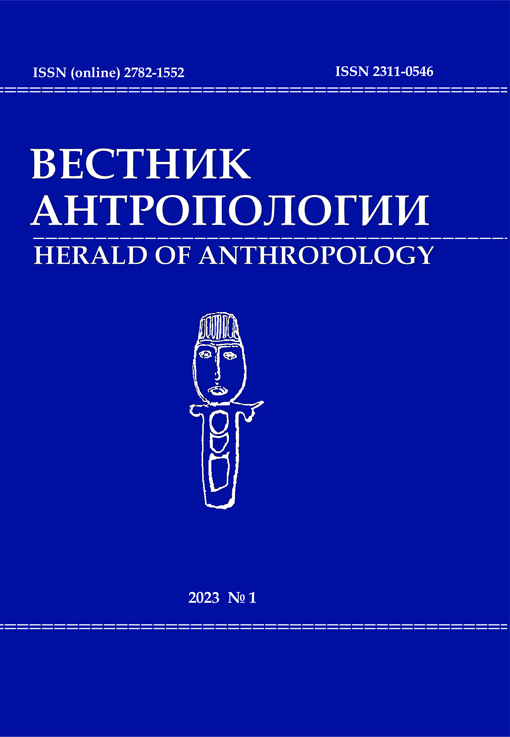Heroic Motifs in the Folklorized Past of the Mari People. Onar as a Mythological Portrait of Ethnic Identity
DOI: 10.33876/2311-0546/2023-1/88-101
Keywords:
Mari mythology, toponymic legends, Mari legends, Mari non-fabulous prose, giant, Onar, ethnic identityAbstract
The article is devoted to the ethnosymbolizing and representative role of the mythical giant Onar in the context of the national (ethnic) identity of the modern Mari people. The author examines in detail the name and functions of the hero in local folklore plots, modern culture, and the perception of Onar by the Mari people. The popular character is studied from the point of view of constructing ideas about the conditional mythical past, the “roots” of ethnic history. The representatives of different Mari groups consistently associate the giant with the ancient history of the Mari lands and the deeds of its heroes. In various texts of nonfabulous prose onars appear both as a category of creatures, a mythical people, and as a specific fairy-tale giant called Onar. The author of the article describes current trends in the cultural practices and ethnic activism related to Onar. In modern society commemorative acts aimed at glorifying the Mari heroes incuding Onar are widespread. This is evidenced by the creation of memorable objects of the cultural landscape or the celebration of the “National Hero’s Day”. The name of the giant is represented in the cultural space of the city and in ethnic branding. The study is based on materials collected in the regions of compact residence of the Mari population.





















